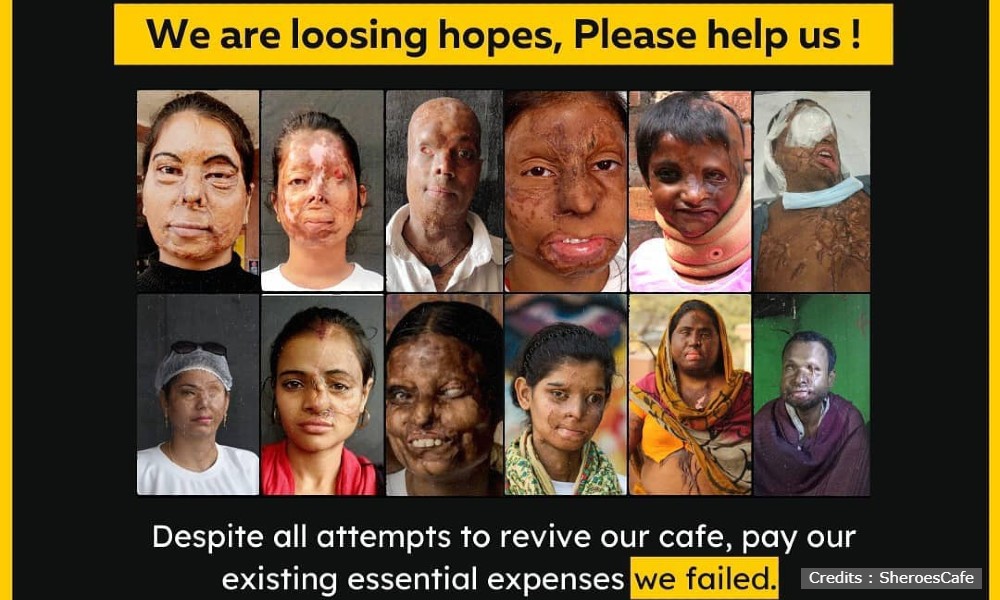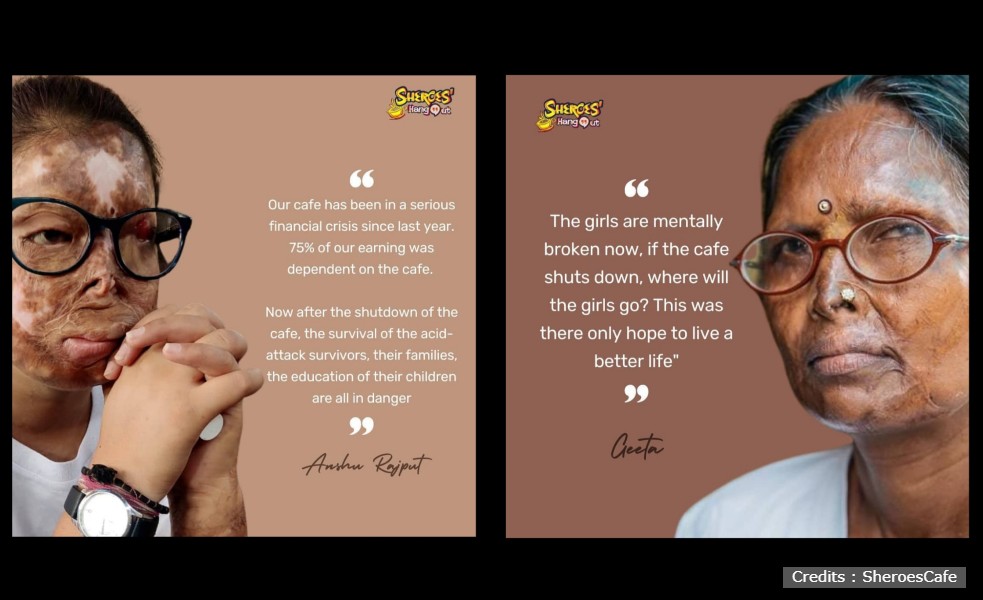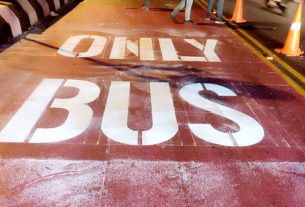Sheroes Hangout café, the only chain in India employing and rehabilitating acid attack survivors, has not survived the pandemic.
Bangalore : Sheroes café closed down because of the heavy losses incurred since the pandemic began, said Sujanya, the administration in-charge. The cafe’s branches are in Agra and Lucknow, and employed around 30 acid attack survivors. The survivors now face unemployment as they lose their only source of income.
Ritu, a survivor, found out about the cafe in 2013. She was one of the first survivors employed there and saw its construction from scratch. It became her escape from society. A place she could feel normal. She said that this feeling was mutual among all the survivors. “It felt like a new beginning, as society had pushed us away,” she said, “the cafe became a place to rebuild.” Ritu added that the cafe gave her emotional support and much needed mental peace.
She is optimistic that the cafe will reopen , slowly and steadily. “Positivity has helped us come a long way, things were worse for us prior to the pandemic,” she said, “ the society was never helpful, but we sufficed.’’ She added that this storm too will pass. She relies on her hopes to pass her days.

The café declared on Instagram that the Covid’s uncertain and deadly wave have left them with no hope. Their financial burdens amount to an approximate Rs 2.2 crores. The café is looking for donations that can support their survivors in rehabilitation.
“Sheroes hangout café was our only means of survival,” said Roopa. She was attacked at a very young age by her stepmother. She started working for the café and became self-reliant. However, because of the pandemic, she fears the risk of being financially drained with no job.
The cafes were a success before the pandemic, said Sujanya. During the first wave of the pandemic, existing funds from the founder organization, Chaavv, were used to distribute salaries to the survivors and other staff that contributed in managing the cafe. “We didn’t fire anyone, we were still coping in the first wave,” she added.
However, at the end of the lockdown, when they reopened their cafe, the business failed to pick up, said Sujanya. Their customers were mostly tourists visiting Taj and foreigners. “Because of the pandemic, this crowd decreased drastically,’’ she said, “locals weren’t financially stable to keep the cafe alive.” Slowly and steadily all funds drained out as 75% of the total revenue was generated just by the cafe.
The idea of the cafe was self sustainability, Sujanya added that they didn’t believe in donations. “We wanted the survivors to believe that they were capable of earning their living,” she said. However, she now relies on the possibility of donations for keeping the rehabilitation of the survivors running.

“It is a very difficult time for us, the condition of the cafe is depressing,” said Rupali Vishwakarma. She said that she joined the cafe after being attacked and losing all hope. She worked on herself and was happy in the cafe. “The cafe is not just a cafe but a home which was nurtured by us all,” she added.
These survivors weren’t the only ones who lost their jobs. Unemployment rate has increased as the second wave sweeps cities in India. Dr. M V Srinivasa Gowda, a socio-economic impact analyst, said that the second wave would be much worse than the first for the economy. “Many will lose their jobs if they haven’t already.”
Nandita Srivastava visited the café in 2019. “ The burned faces shook me, I think that is the reaction that would occur to most,” she said. She added that she felt a sense of relief when she saw them working towards independence. “Honestly, it was inspiring to see them survive something so wrong and try to work towards a better future.”




